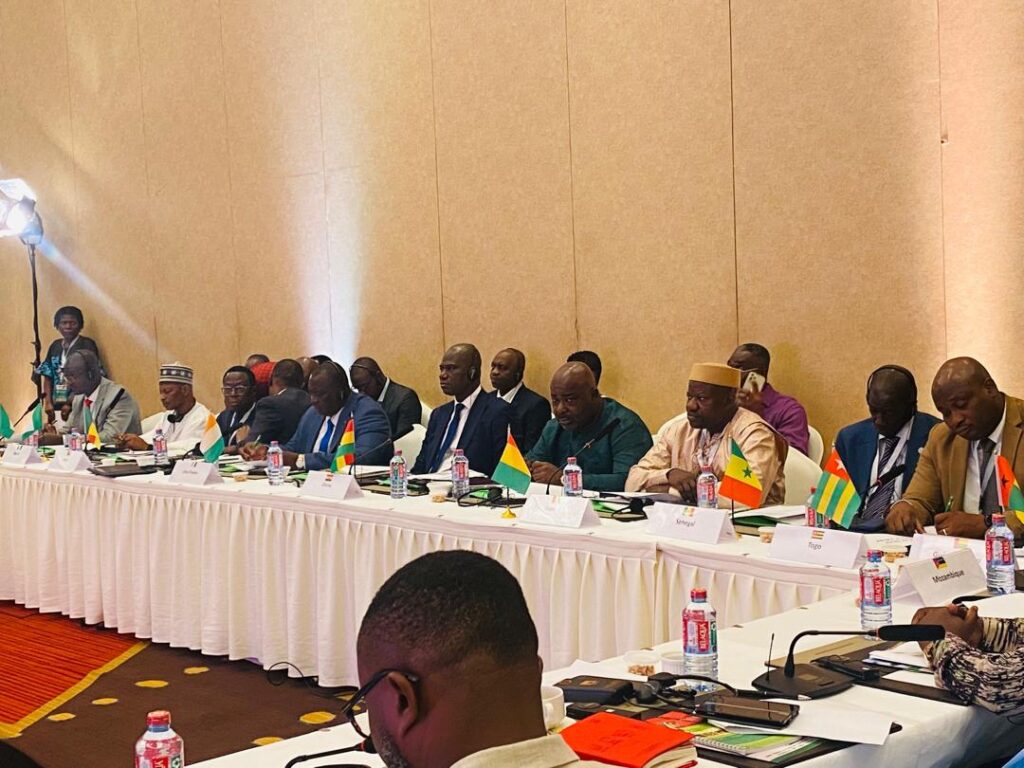African nations bound their destinies together in their pledge to defend their common interests when it comes to the marketing of cashews on the international market. Fair prices for African exports are their concern, though they agree much homework ought to be done to justify their call.
At their 6th Consultative International Cashew Council (CICC) and Cashew Fair and Exhibition held in Accra’s Children’s Park, the members agreed to pursue the agenda of diversifying their economies by promoting other cash crops, increasingly the attention is paid to cashews.
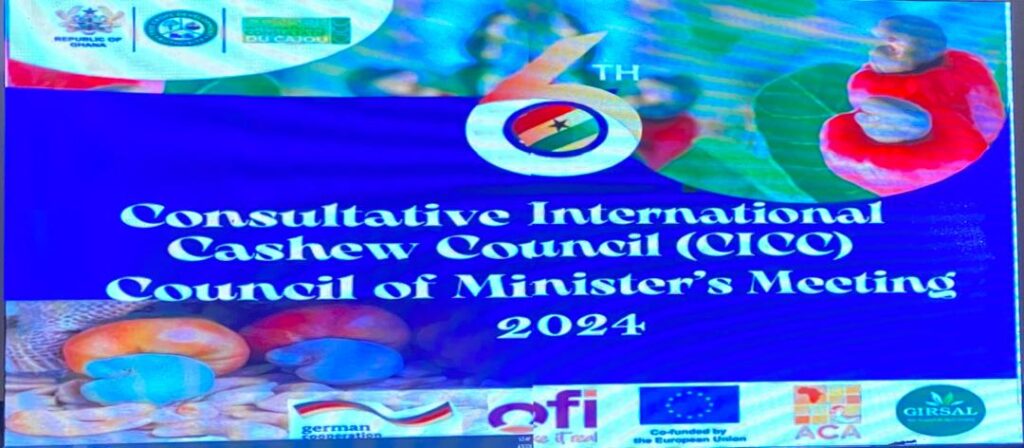
Africa has a 58 per cent share of the global cashew market. The Ivory Coast once again proves her agricultural prowess leading the pack as Africa’s leading producer of cashew, and falls to third place after Vietnam and India on the world log.
Also, Africa’s leading cocoa and pineapple producer, the Ivory Coast has an annual cashew production rate of one million, two hundred and twenty-eight thousand tons (1,228,000). It processes about 225,000 tons as of 2023, an increase from 35,000 tons when Alassane Ouattara assumed the presidency in 2011.
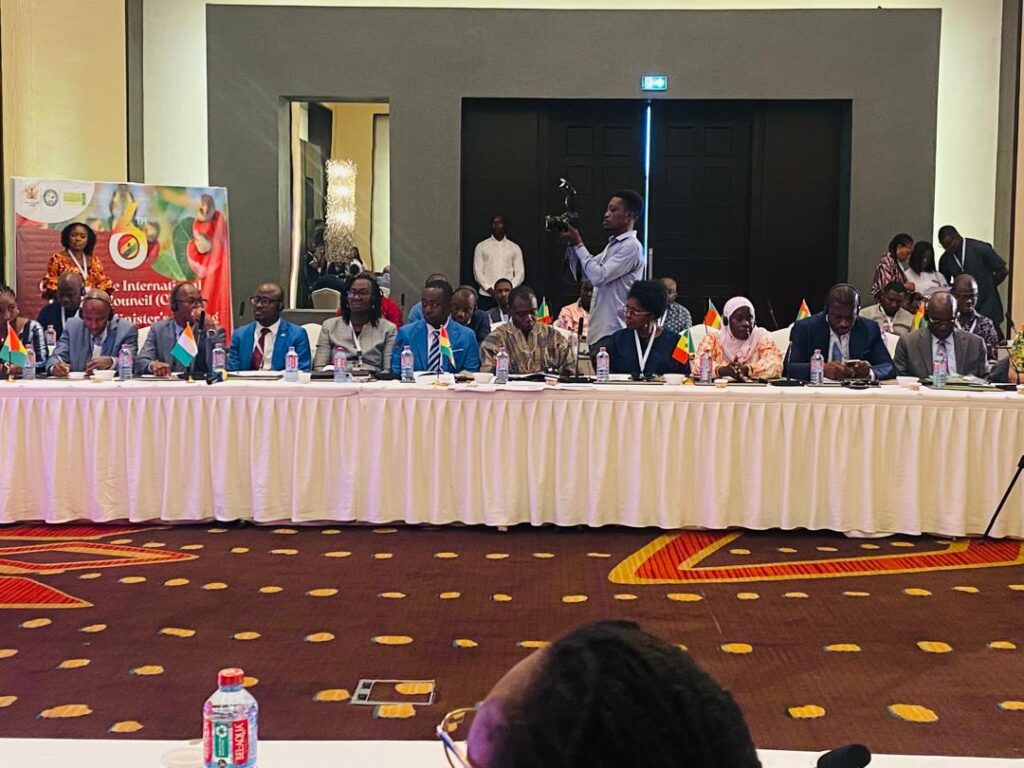
The Ivorian economy hinges on agriculture with annual export earnings estimated to be 7 billion dollars. When interviewed outside the setting of the CICC, a former Ghanaian Minister of Agriculture, Dr Owusu Afriyie Akoto noted, that the huge Agricultural revenues are partly the reasons Alassane Ouattara could offer his country as hosts of the 2023 African Cup of Nations soccer fiesta. “All that the country needed was 1 billion dollars, a slice of that revenue for the organization of the successful tournament,” said the former minister.
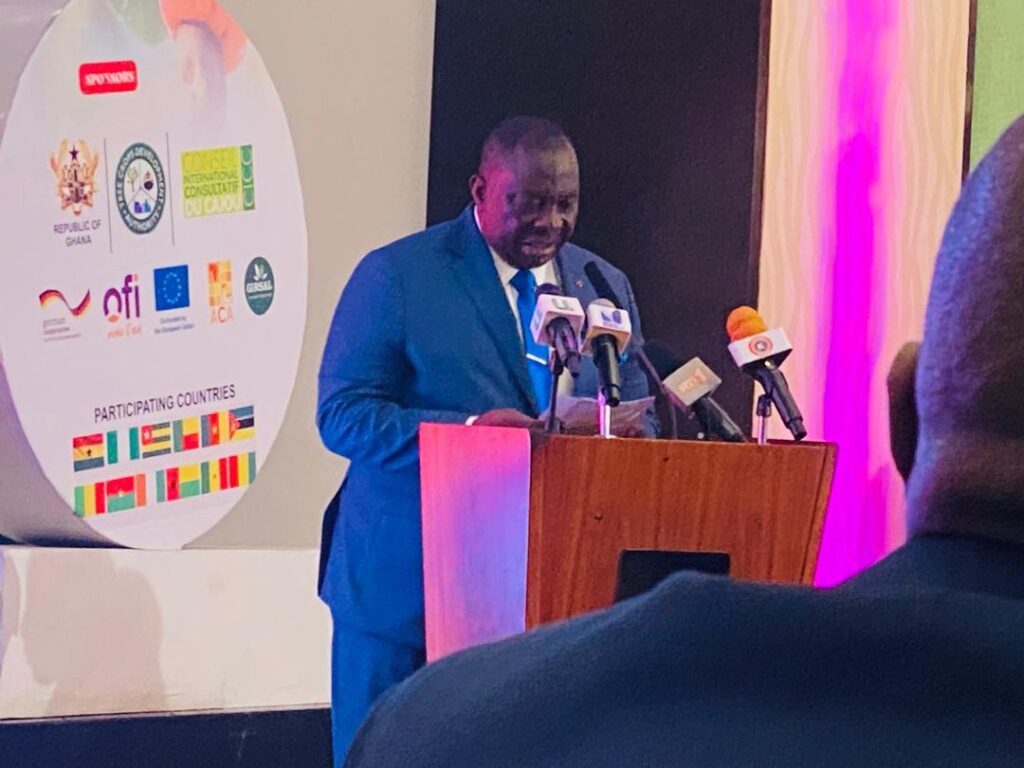
At the 2024 CICC ministerial meeting in Accra, the Ivory Coast represented by a minister of state, Kobina Kossi Adjomane said his country was open to sharing her experience with others. Ghana which took over the chairmanship of the council from the Ivory Coast at this edition, has its own story to tell.
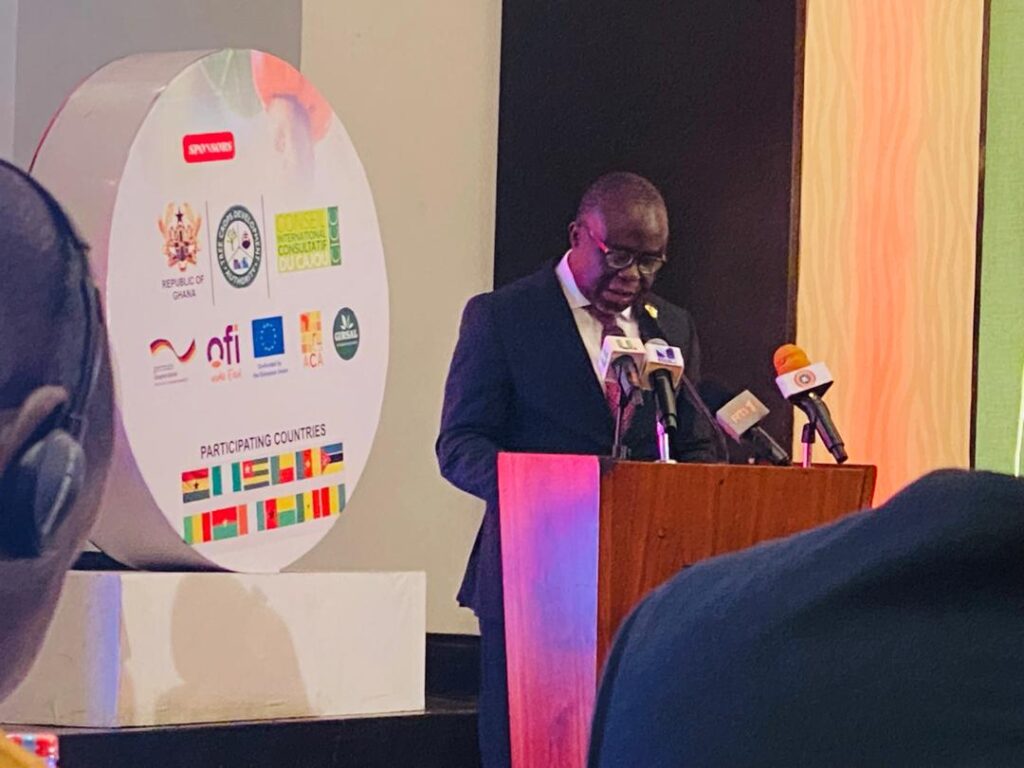
The onus fell on the Deputy Minister of Food and Agriculture, Mr Yaw Addo Frimpong in the absence of the substance minister, Dr Bryan Acheampong. In 2020, Ghana established the Tree Crop Development Authority (TCDA), to bring six identified cash crops in a single direction. These include Mango, Cashew, Shea nut, Coffee, and Rubber. This is to fully tap the potential in the cash crops to ramp up revenues which stood at 2 billion dollars in the name of only cocoa.
Ghana is also a juggernaut in Africa’s agriculture but has yet to maximize its portfolio. For instance, she is the world’s second-largest producer of cocoa, in a distant second to the Ivory Coast. In the last two to three years, the Ivory Coast, Ghana and Kenya became Africa’s leading exporters of pineapples. In 2021, Ghana was the world’s leading exporter of Yam.
Cashew looks like the new gold egg and a rallying point of Africa’s agricultural revolution. The product is gregarious in West Africa but Mozambique, a country in the southern region of the continent fancies her own prospects. Granted an observer status on the CICC, the country’s representative said Mozambique ranks seventh in global production and fiftieth in commodity processing capacity.

Countries like Guinea, Guinea Bissau, Nigeria, Togo, Mali, Senegal, Benin and Cameroon are at different levels of embryonic development in the Cashew sub-sector. Senegal is a small producer with big ambitions to turn Cashew into a major industrial product. Nigeria says its government has been making financial resources for cashew promotion on an incremental basis.
Whilst countries have their peculiar challenges, ranging from lack of quality planting material, pests and disease, armed conflicts, and a deficient processing capacity to marketing, they are also constrained by general factors such as climate change, market volatilities, and social equity concerns.
To rise above the challenges, all cashew-producing countries agree to project the commodity through local consumption, value addition, and job creation. They hold the unanimous view that plans to engender accelerated rural development require cashew, a point Ghana operationalizes under the agricultural intervention called “planting for food and jobs, PFJ.” Under the PFJ, cashew seedlings are distributed to farmers free of charge, with plans far advanced to accord the product a producer price under a robust national cashew policy.
Nigeria offers one of the best examples of local patronage. She produces yam more than any country but much of it is retained for demand on the domestic market.
The 6th CICC also committed to a report by a panel of experts which sets the framework for cooperation among cashew producers in Africa.